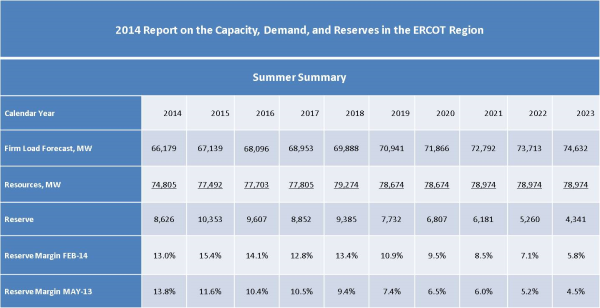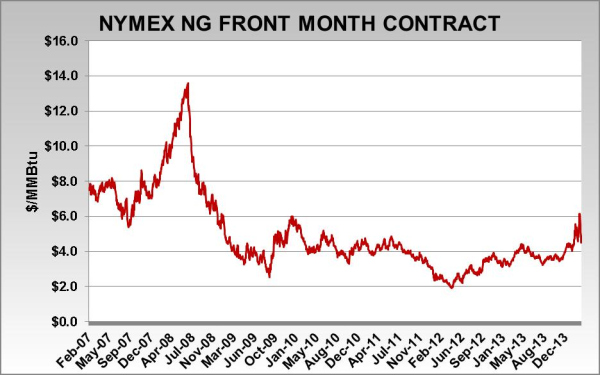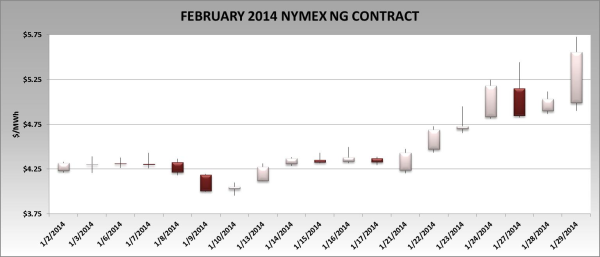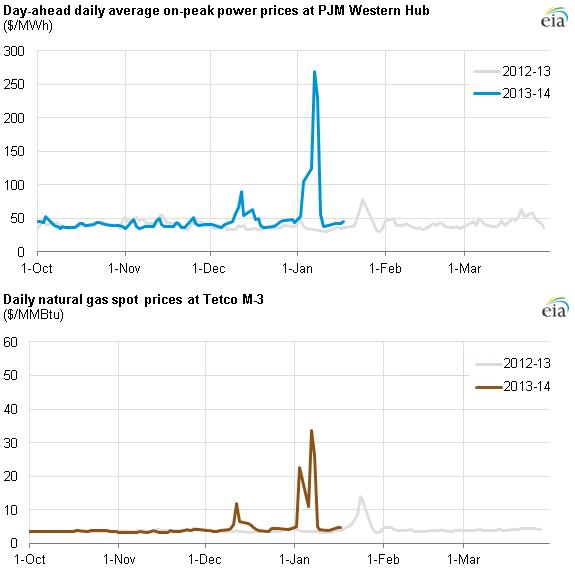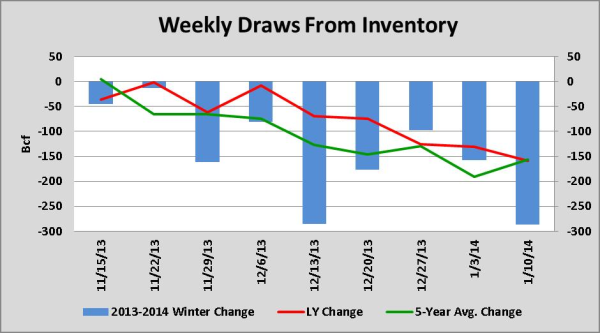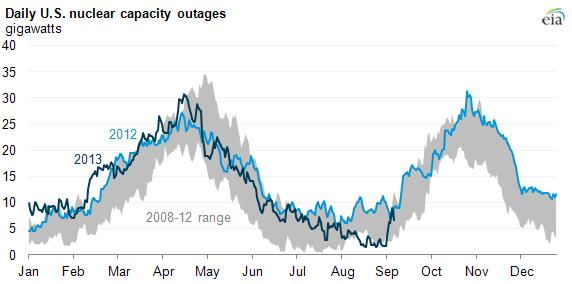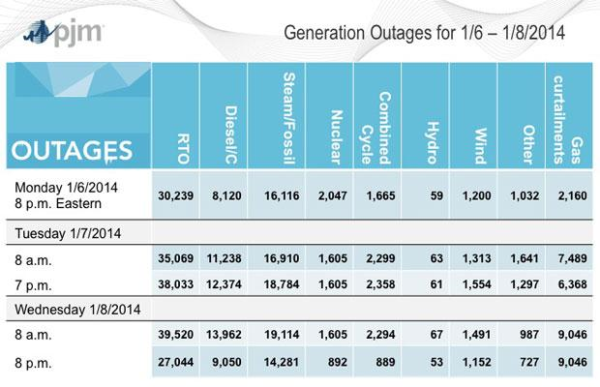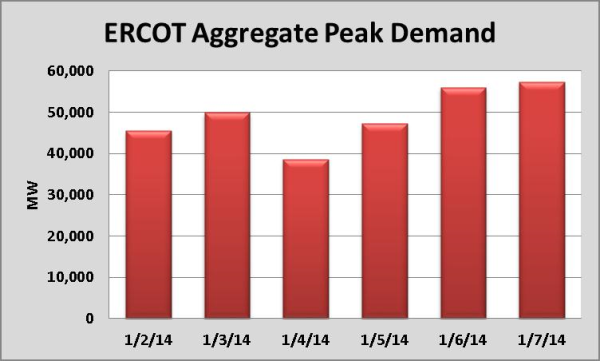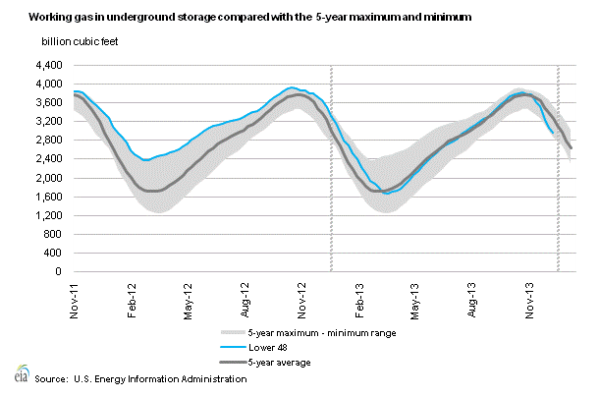During the fall, meteorologists sharpen their assumption to build their probability weighted winter weather forecast scenarios. From an energy perspective, this is also a critical time of the year. Since it is typically a period of low energy demand, there tend to be seasonal dips that provide good buying opportunities in natural and electricity. This year though, natural gas prices have been seesawing since mid-July 2014 due to the following reasons:
Topics: Heating Season\, Polar Vortex, Texas Energy, forward curve, winter strip, spot price, energy risk management, energy sourcing, Acclaim Energy Advisors, energy management consulting, energy, energy procurement, weather outlook, reliable energy, energy costs, power generation, Weekly Energy Insights, natural gas, Event, energy management, energy management consultants, strategic energy sourcing, reserve margin, Price Spike, energy blog, power outages, Natural Gas Supply, price volatility, reserve, report, energy storage, NG Demand, seasonal drought, energy supply, EIA, Texas, Winter Weather, U.S. energy, NG, forecasting, refueling season, NG contract
ERCOT's Latest CDR Report Shows Higher Reserve Margins: How Will This Affect Regulatory Policy?
Posted by Jennifer Chang on Mar 5, 2014 10:15:00 AM
On Friday, February 28, ERCOT published its 2014 Capacity, Demand and Reserves (CDR) report. Resource adequacy has been at the forefront of ERCOT’s electricity policy debate. Forecasting future demand is critical for planning purposes to determine how much generation will be needed in future years to meet peak demand. Resource adequacy concerns have prompted the PUCT to approve mechanisms that increase the duration and frequency of scarcity pricing signals in ERCOT to support adequate generation development in the state. One measure, that has also encouraged some Commercial and Industrial customers to take advantage of higher prices through prices response (load shedding and Distributed Generation (DG) dispatch), is the October 2012 decision to increase the system-wide offer cap to the following levels, effective on the dates below:
Topics: ERCOT, risk management, Energy Solutions, energy procurement, demand response, energy reliability, power generation, Weekly Energy Insights, reserve margin, energy price spikes, energy blog, reserve, report, energy efficiency, U.S. energy, PUCT, forecasting, CDR, capacity, demand, load shedding, distributed generation, scarcity pricing, current outlook
Energy Future Holdings-Is a Bankruptcy Filing Looming?
Posted by Jennifer Chang on Feb 28, 2014 12:48:00 PM
On October 10, 2007, the largest leveraged buy-out in American history was completed by Kohlberg Kravis Roberts, Texas Pacific Group and Goldman Sachs Capital Partners. Energy Future Holdings (EFH), executed a merger agreement to acquire all the shares of the publicly traded TXU Corp for $45 billion (32 billion plus $13billion in assumed debt). All parties agreed to the deal in February 2007, and in September 2007, TXU shareholders had approved the takeover. EFH ended up with a portfolio of competitive and regulated energy companies:
Topics: TXU, bankruptcy, Energy Future Holdings, TXU Energy, ERCOT, energy sourcing, Acclaim Energy Advisors, energy management consulting, energy, Energy Solutions, energy procurement, demand response, energy reliability, energy costs, Weekly Energy Insights, energy management, energy blog, DLO 365, U.S. energy, curtailment, NYMEX
Highest NYMEX Natural Gas Expiration in Four Years: Tough Risk Management Lesson for Some
Posted by Jennifer Chang on Jan 31, 2014 5:16:00 PM
On January 2, 2014, the NYMEX Henry Hub NG February-2014 (front month) contract settled at $4.321/MMBtu, and on January 29, 2014, the contract expired at $5.557/MMBtu (see chart below). This was the highest expiration settlement price for the front month in four years. During the month of January, the front month contract rose $1.24/MMBtu, or 28.6%. The chart below shows that on expiration day (1/29/14) the front month price posted a $0.52/MMBtu or 10% gain for the day. The March 2014 contract followed suit and rallied almost 11%, settling at $5.465/MMBtu. During the expiration day, weather forecasts turned colder than previously expected, so market players that underestimated demand rushed to the market and were clobbered in a short squeeze.
Topics: energy risk management, energy sourcing, Acclaim Energy Advisors, energy, Energy Solutions, energy procurement, reliable energy, demand response, energy regulations, energy reliability, energy savings, energy costs, power generation, Weekly Energy Insights, natural gas, energy management, energy management consultants, energy price spikes, Price Spike, energy blog, Natural Gas Supply, price volatility, energy supply, U.S. energy, NG, curtailment, Emergency, gas gross production report, price direction, NG contract, NYMEX
NG Spot Prices Reach Record Levels and Boost Power Prices During January 2014
Posted by Jennifer Chang on Jan 24, 2014 5:17:00 PM
Two ruthless surges of arctic air, east of the Rockies, have taken over the eastern half of the country this month. The latest forecasts suggest that this weather pattern will continue to linger through the end of the month. Sub-zero temperatures are expected in the upper Midwest cities and the great lakes, including Chicago, Minneapolis and Detroit and possible below zero temperatures as far south as the Ohio River. Factoring in wind chill, temperatures are expected to be 20 or 30 degrees below zero. This weekend a couple of Canadian clippers will be followed by another arctic surge through mid-next week with conditions that could rival those from January 6, 2014. A Canadian clipper (a.k.a Alberta clipper) is a storm system during the winter months that originates from the Canadian Province of Alberta (or there close by). The term "clipper" originates from the quick speeds of clipper sailing ships. Thus, an Alberta clipper is a quick-moving winter storm system originating from Alberta, Canada. A clipper will usually bring smaller bursts of snow (generally 1-3 inches) along with colder temperatures and often times gusty winds (The National Oceanic and Atmospheric Administration).
Topics: energy risk management, Acclaim Energy Advisors, risk management, energy, Energy Solutions, energy procurement, weather outlook, reliable energy, demand response, energy regulations, energy reliability, energy savings, energy costs, power generation, Weekly Energy Insights, natural gas, Event, energy management, energy management consultants, energy price spikes, Price Spike, energy blog, energy supply, Winter Weather, U.S. energy, Peak Demand, mid-atlantic, new england, NG
Natural Gas Market Supplies Tighten On Higher Than Normal Draws- Are You Protected Against Price Spikes?
Posted by Jennifer Chang on Jan 21, 2014 10:18:00 AM
So far, the 2013-2014 winter has been exceptionally cold across the eastern half of the U.S. Arctic outbreaks and the bitter cold winds from the Polar Vortex have spilled across major natural gas consuming regions. Massive draws from inventory have been needed to meet surging demand for heating from the residential, commercial and electric power sectors. This season has been characterized by withdrawals that have been much larger than average.
Topics: Heating Season\, Polar Vortex, energy risk management, energy sourcing, Acclaim Energy Advisors, energy management consulting, risk management, energy, energy procurement, demand response, energy regulations, energy reliability, energy costs, power generation, Weekly Energy Insights, natural gas, energy management, energy management consultants, energy price spikes, Price Spike, energy blog, Natural Gas Supply, energy supply, U.S. energy, capacity markets, refueling season
More Nuclear Power Plants to Refuel in 2014 Compared to 2013: How Could This Affect Natural Gas Prices?
Posted by Jennifer Chang on Jan 17, 2014 1:34:00 PM
Platts recently reported that the 58 U.S. nuclear power plants totaling almost 60,000MW are expected to refuel in 2014, compared to 54 units totaling over 55,000MW in 2013. The analysis is based on historical refueling data from the US Nuclear Regulatory Commission.
Topics: energy risk management, Acclaim Energy Advisors, energy management consulting, energy procurement, reliable energy, energy regulations, energy reliability, energy costs, power generation, Weekly Energy Insights, energy management, energy price spikes, Price Spike, power outages, U.S. energy, capacity markets, nuclear units, power plants, refueling season
Arctic Blast Shuts Down 20% of PJM's Installed Capacity-Conservation, Demand Response and Power Imports Save the Day
Posted by Jennifer Chang on Jan 12, 2014 10:49:00 AM
PJM is the largest regional transmission organization (RTO) in the U.S. and coordinates wholesale operations in all or parts of Delaware, Illinois, Indiana, Kentucky, Maryland, Michigan, New Jersey, North Carolina, Ohio, Pennsylvania, Tennessee, Virginia, West Virginia and the District of Columbia.
Topics: ERCOT, energy risk management, Acclaim Energy Advisors, energy management consulting, risk management, energy, Energy Solutions, energy procurement, weather outlook, reliable energy, energy regulations, energy reliability, PJM, energy savings, energy costs, Weekly Energy Insights, energy management, energy price spikes, energy blog, power outages, Winter Weather, U.S. energy, load generators, RTO
ERCOT Sets New Winter Peak Demand- Real Time Prices Hit $5,000/MWh Cap on January 6, 2014
Posted by Jennifer Chang on Jan 8, 2014 12:59:00 PM
Topics: Heat Rate, REP, ERCOT, Acclaim Energy Advisors, energy management consulting, risk management, energy, Energy Solutions, energy procurement, weather outlook, energy regulations, energy reliability, energy savings, energy costs, Weekly Energy Insights, Event, energy management, energy management consultants, energy price spikes, Price Spike, Winter Weather, U.S. energy, Peak Demand, Emergency
Winter Storm Hercules-Boosts Near-Term Demand for Natural Gas
Posted by Jennifer Chang on Jan 3, 2014 12:59:00 PM
Midwest and Northeast residents have not experienced an arctic blast of this magnitude in more than a decade. The system has moved eastward from Illinois through New England. The all-time record low in Chicago of -11˚F was recorded in 1994 and temperatures on January 6 are expected to be -6˚F, very close to such record. Not only is the storm dumping considerable amounts of snow (5” - 12”), but it is also bringing frigid, below normal temperatures with the coldest air so far this season. Temperatures are expected to be between 20˚F - 40˚F below average in large parts of the continental U.S. through next week. Moreover, sustained 15-50MPh winds are expected, so blizzard warnings have been issued in Cape Code and Long Island. An additional storm behind Hercules will keep temperatures well below normal through early next week.
Topics: energy sourcing, Acclaim Energy Advisors, energy management consulting, risk management, energy, Energy Solutions, energy procurement, weather outlook, reliable energy, energy regulations, energy reliability, energy savings, energy costs, power generation, Weekly Energy Insights, energy management consultants, Texas, dynamic load optimization 365, DLO 365, Winter Weather, U.S. energy, exports



